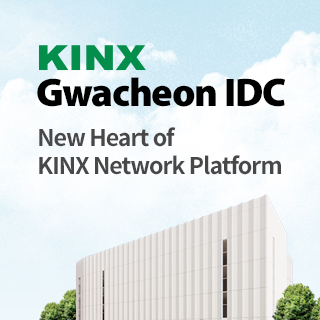Introduction


Global company specialized in CDN possessing its long company history
CDNetworks, founded in 2000, is the first CDN company in Korea and this company is unceasingly growing since then.
In 2011, annual sales revenue reached at $5B as a global telecommunicator and received investment from KDDI. CDNetworks never stopped making success stories in the CDN industry based on its stable finance from the investment.
Background

Effective traffic exchange among multiple caching nodes
Cdnetworks, a global CDN enterprise, provides CDN services with 200 global PoPs. As a global CDN company, one of the key priorities is exchanging traffic among multiple caching nodes but Cdnetwork’s previous infra was not cost effective, since traffic exchange had to be occurred from a node to a node.
What did KINX do?

Suggested local peering , transit and metro connect for CDnetworks
KINX suggested local peering and metro connect (plus dedicated lines) various caching node connections for CD Networks.
KINX is the only local peering service provider in Korea; 42 members including major ISPs, SOs, CPs are peered at 562G backbone network at KINX IDCs. Allowing domestic ISPs, SOs and CPs to directly exchange Internet traffic without any charges, peering is much more cost-effective than using transits. 17% of the eyeballs in Korea (around 3 millions) uses the Internet through KINX.
Metro connect uses Metro Ethernet using a L3 switch to interconnect customer’s network with enterprise Internet dedicated lines. This makes KINX Metro Connect special since customer’s infra environment becomes optimized.
Transits can be purchased by any ISPs and installed in either domestic or global places. Thus, it is doable to purchase more than 2 transits from multiple ISPs for optimized routing path.
Effect

Reliable connection among multiple caching nodes
CDNetwork used KINX local peering, metro connect and transit services to interconnect among multiple caching nodes to configure reliable network. The bundle of KINX services reduced transit costs by optimizing routing paths.









